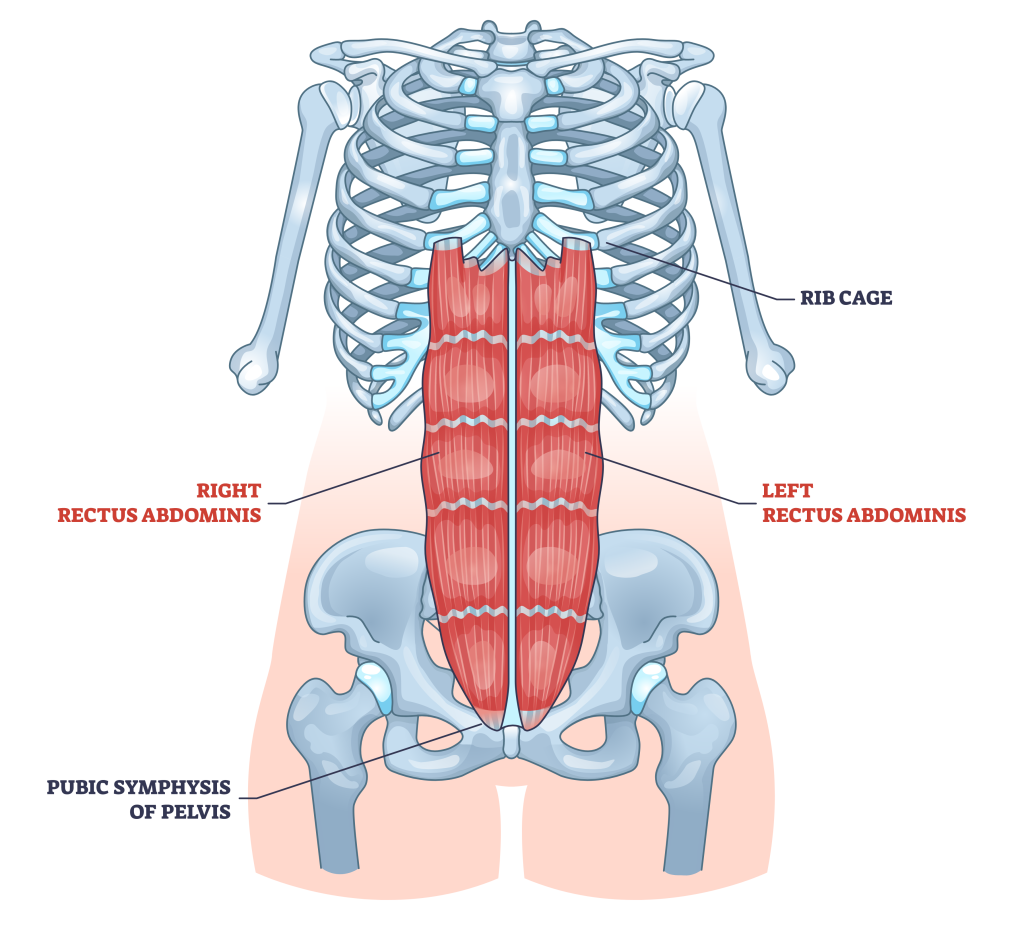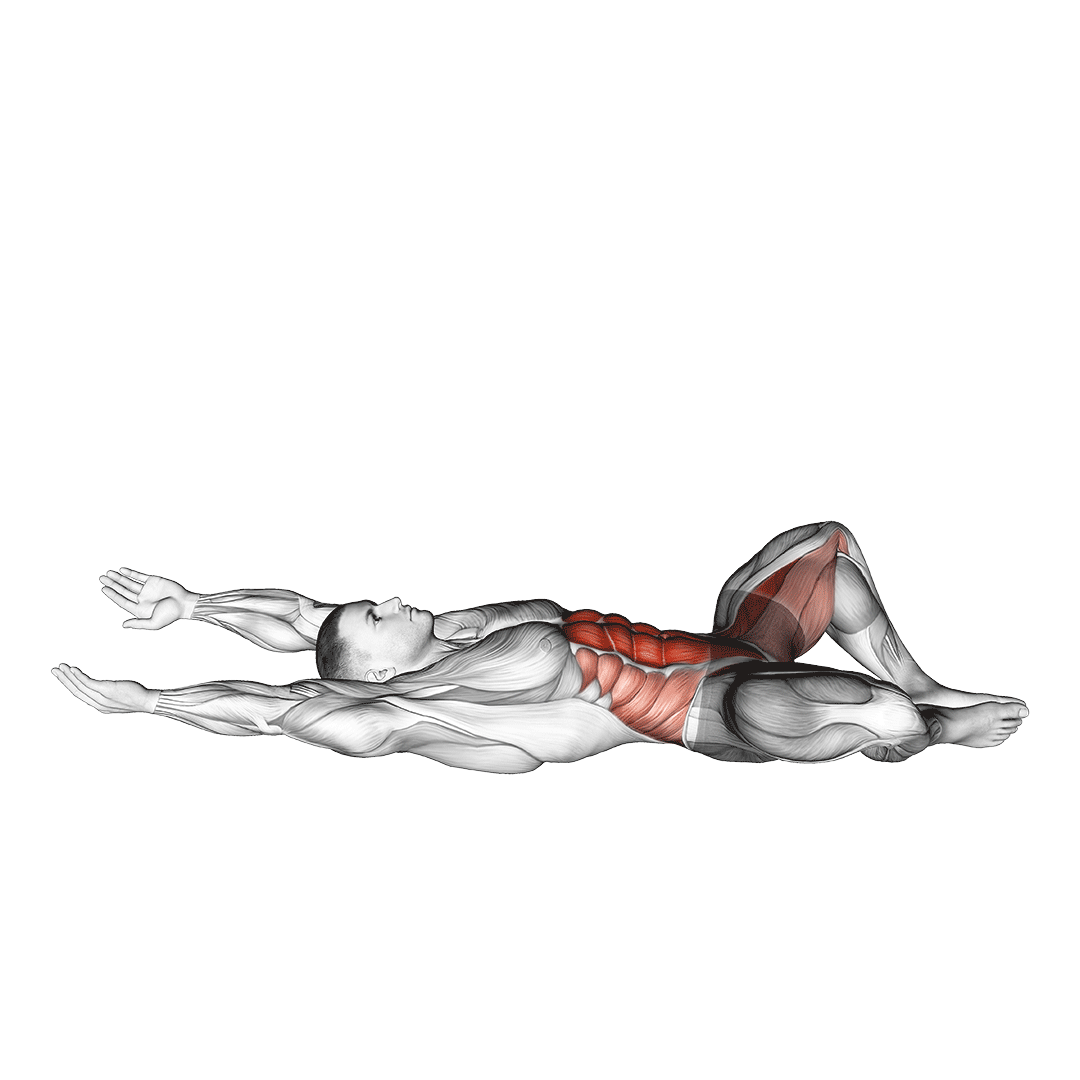What are the Benefits of Doing Butterfly Sit-Ups?
Apart from sharing much of the same advantages as regular sit-ups, butterfly sit-ups also present a few unique benefits that make them more than worthy as a standalone movement.
Noteworthy benefits:
- Excellent for building the abdominal muscles
- They feature greater range of motion and isolation
- Reinforces Spinal Flexion, Anterior Trunk Flexion, Intra-Abdominal Pressure and Trunk Stabilization
- Improves Posture and Reduces Future Risk of Injury
- Simple to perform
- Easily loaded and modified
Benefits of Butterfly Sit Ups
Excellent for Strengthening the Abs
The main benefit to doing butterfly sit-ups is targeted strengthening of the abdominal muscles.

With a large range of motion and a lack of interference from other muscle groups, the butterfly sit-up is particularly well-suited to developing the abdominal section of the core.
This sort of development comes in both a static and dynamic capacity, improving the strength of the abdominal muscles both while the torso is moving and while it is remaining still.
To get the best results out of the butterfly sit-up (in terms of abdominal development), aim to achieve a full range of motion and purposefully slow down the starting eccentric phase of each repetition. The slower and wider each repetition, the more the abs are taxed and the more they will be forced to adapt.
Comparatively Larger Range of Motion and Greater Isolation
In comparison to conventional sit-ups and similarly stanced variations, the butterfly sit-up is particularly proficient at allowing for large ranges of motion and isolation of the abdominal muscles.

As mentioned previously, a larger range of motion allows for an elongated time under tension - alongside a greater use of the abdominal muscles in their entirety.
Such a comparative benefit is especially true in regards to placing tension on the muscle while in a stretched position, maximizing hypertrophy and allowing for more quality reps as a whole.
This advantage further meshes with the more isolated contraction of the abdominal muscles displayed by the butterfly sit-up. Without the limitation of fatigue or inflexibility in muscles like the spinal erectors or hip flexors, the core may be targeted to a far greater extent.
Reinforces Spinal Flexion, Anterior Trunk Flexion, Intra-Abdominal Pressure and Trunk Stabilization
The abdominal muscles play a wide variety of roles, considering their central placement and rather complex network of connective tissue bands.
Among their many biomechanical functions, anterior flexion of the trunk (and the underlying spine) is the action practiced the most during butterfly sit-ups.

As such, it is this particular action that is reinforced to the greatest extent by regularly practicing butterfly sit-ups.
In addition, as a result of general abdominal strengthening as a result of the exercise, other actions related to the abdominal muscles such as general trunk stabilization and creating intra-abdominal pressure are reinforced as well.
Improves Posture and Reduces Future Risk of Injury
The core muscles play a major role in maintaining proper posture and overall physiological integrity.
When strengthened, lifters with postural issues related to a weak set of abdominal muscles will notice quick alleviation of the issue - so long as it is actually the muscles themselves that are the cause.
For much the same reason, regularly performing butterfly sit-ups will also reduce overall future risk of injury in relation to the abdomen and spine. Stronger core muscles equate to a greater capacity for stabilization of the trunk, as well as a greater capacity to create and hold intra-abdominal pressure while exercising.
Remember to always speak to a medical professional prior to attempting to rehabilitate a physiological issue yourself. Certain underlying causes of poor posture can in fact be worsened by performing abdominal exercises, rather than improved.
Simple, Equipment-Free and Generally Accessible
A hallmark of nearly all variations of sit-up is general simplicity and accessibility. Little to no training equipment is needed, and the exercises themselves are relatively easy to master, even for complete novices to exercise.
The butterfly sit-up is no different in this regard. Apart from requiring somewhat greater mobility in the groin and hip area, the exercise is readily accessible and requires no equipment to perform.
Can be Loaded or Modified as Needed
Although the butterfly sit-up is considered to be accessible to novices, more advanced athletes may wish to make the exercise more intense - or otherwise more specific to their training needs.
As yet another benefit of their simplicity, the butterfly sit-up can be readily modified or loaded with additional weight in order to meet such demands.
Simply wrapping a resistance band around the torso or otherwise gripping a light weight against the chest can greatly increase the intensity of the movement.
Likewise, performing the exercise with a band wrapped around the feet as the opposite end is held in the hands can make the exercise less intense, allowing for an easier set.
Other modifications can include performing the movement with the heels further or closer to the hips, performing the exercise with the torso limited by an inclined wedge or twisting to one side for greater oblique emphasis.
References
1. Kumar, Rajesh, and Erika Zemková. 2022. “The Effect of 12-Week Core Strengthening and Weight Training on Muscle Strength, Endurance and Flexibility in School-Aged Athletes” Applied Sciences 12, no. 24: 12550. https://doi.org/10.3390/app122412550
2. Andrade DC, Henriquez-Olguín C, Beltrán AR, Ramírez MA, Labarca C, Cornejo M, Álvarez C, Ramírez-Campillo R. Effects of general, specific and combined warm-up on explosive muscular performance. Biol Sport. 2015 Jun;32(2):123-8. doi: 10.5604/20831862.1140426. Epub 2015 Feb 16. PMID: 26060335; PMCID: PMC4447757.
